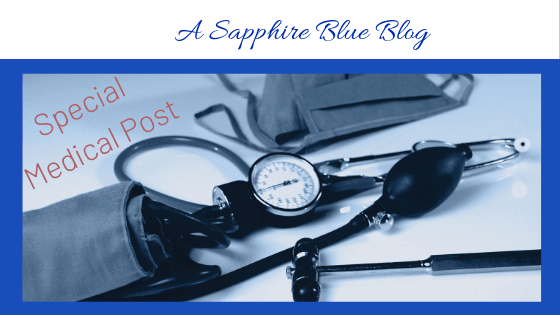
Pulmonary Embolism…
An unwelcome travel companion
We all know the importance of moving while flying and the threat of developing an Embolism or a DVT (Deep Vein Thrombosis). in this post I sat down with a dear friend and she shares her encounter with a Pulmonary Embolism during a long-haul flight.
But do you know the risks?
Do you know how to prevent it?
Do you know the signs?
Recently, I met with Daylle, and we talked about an experience that she had.
Let’s start with the positive part of the story.
What were your plans?
I was planning on flying Qatar Airlines from Sydney to Doha in Qatar and then onto Scotland, for a nine-week holiday.
So there were big expectations for the trip?
yes
What got in the way of your adventure?
What got in the way was, collapsing coming off the plane in Doha, which resulted in me being hospitalised.
Had you been feeling unwell at all before you collapsed on the flight? Not at all
Oh, no. Did it end up just being a simple fainting spell?
No. It was much more severe. I ended up with a bilateral pulmonary embolism.
For non-medical people, what does that mean?
A Clot in the lungs.
When you collapsed, did you lose total consciousness?
No, I thought I was going to faint, so I actually put myself down on the ground, and then the airline got me a wheelchair and took me to their medical centre.
Am I guessing you weren’t on an aisle seat?
No, I was not, I was in the middle, so I guess as travellers, we need to be proactive in looking after ourselves a little bit. And not worry about, your neighbour, just move.
That’s good advice.
The flight from Sydney to Doha is about 14 hours. What were you doing?
I was sitting in my seat, reading and sleeping; I was doing my foot exercises regularly and had on compression leg stockings. I thought that was enough. But in hindsight it’s not, you need to get up and walk. So I learned the lesson the hard way.
At the medical centre, did they put you on an ECG or run necessary assessments?
No, they put me on oxygen, gave me an aspirin and then got an ambulance, sent me straight to the hospital.
Discovering the Pulmonary Embolism
Talking previously, you were saying when you got to the hospital. They had run some scans, what did they show?
I had, what they call echocardiography, which showed that my heart was in Right Cardiac failure, which wasn’t very good news, and they did a CT scan of my lungs, then they put me on to an anticoagulant infusion. Which helped dissolve the clot.
Oh, that’s good.
You were saying that the scans could pinpoint where the clot originated?
One of the doctors said that one site was in my thigh. In my Femoral Vein, I’ve since learned that that’s where the clots typically are now because people are sitting and even though you’re moving your lower legs, you’re not moving the upper leg.
Once they realised that you were in cardiac failure, what did that mean for you?
I was then transferred up to intensive care and was in intensive care for three, four days. And then I was discharged.
Just a note on Qatar’s health system, how did you find their hospitals?.
Very good. Excellent. In intensive care, you had one on one nursing staff.
That’s good, did the staff speak English? yes
The nursing staff were not Qataris. They were from other countries.
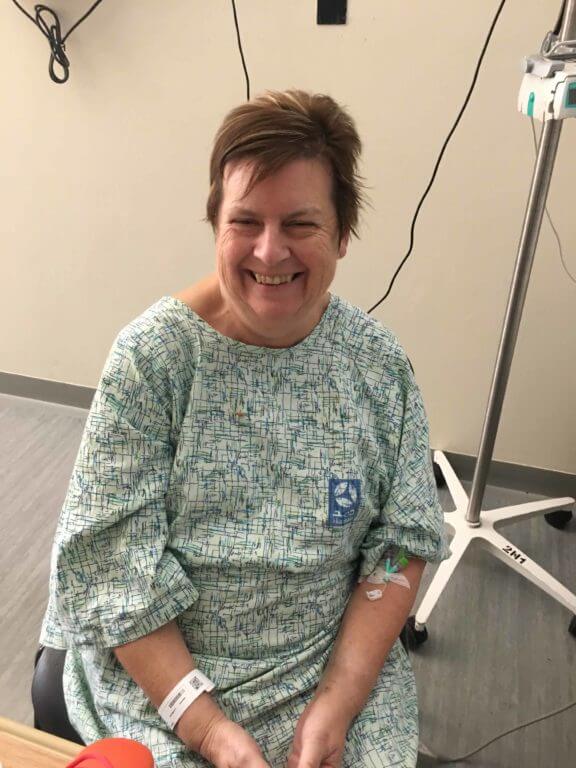
Daylle feeling much better after the excellent medical care at a Doha Hospital
The journey continues after the Pulmonary Embolism
Were you able to continue your journey, once you got out of the hospital?
Daylle feeling much better after the excellent medical care at a Doha Hospital
Once, the hospital cleared me to fly, I then had to be cleared by Qatar Airways. Which is a long process, but, once I got the clearance, I was able to fly on.
Is that why you spent the other half of that week in Qatar, just trying to get all that sorted?
The Insurance doctors had to agree that I could continue. I had to get the Qatari doctors to sign off for me to continue our journey and the Qatar Air doctors, So it was a matter of lining up everybody to make it happen.
Thankfully you were not flying alone; there were other people in your party, your husband Greg stayed with you. And the rest of your companions went on. Where did you meet up with them?
We met up with half of the group in Scotland and toured Scotland with them. Then we met up with the rest as a group in Ireland.
Had you had any coronary issues before this episode? No
So all of this was brand new? Yes
That must’ve been pretty scary, too, encountering all of this in a foreign country? Sure was
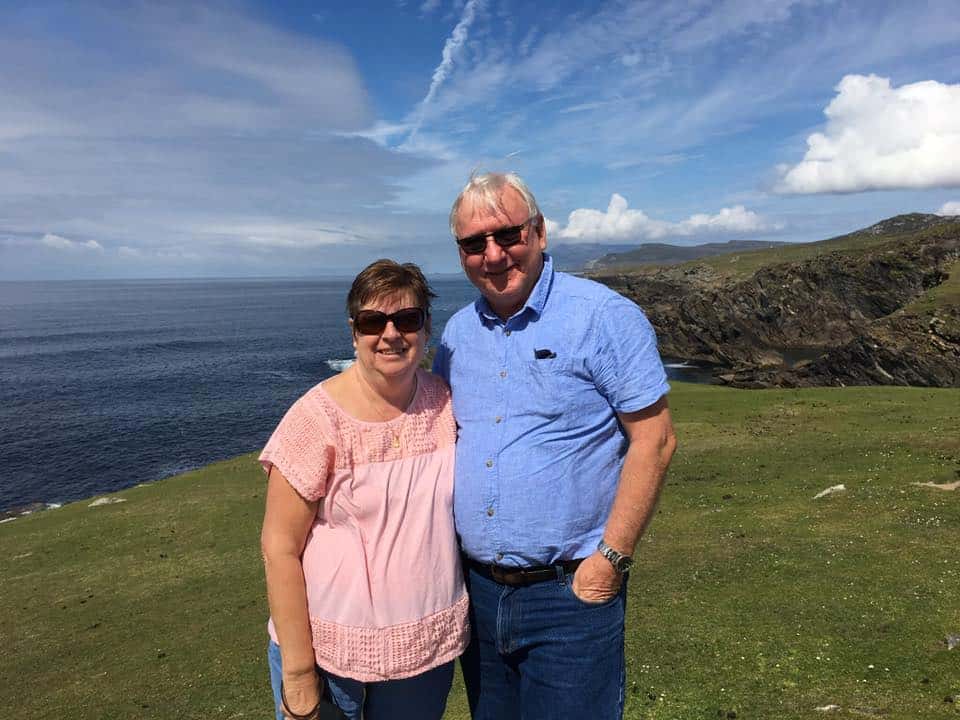
Daylle and Greg enjoy Achill Island
How was travelling post the embolism for you?
It was OK, on the flight from Qatar to Edinburgh I walked every hour. I had to be a little bit more careful not to strain myself walking, so, just did short bursts.
Qatar Air also organised a wheelchair to the plane and had put oxygen on the flight in case I needed it. They also organised a wheelchair in Edinburgh from the plane to the exit.
What about too many stairs, and the day to day, did you notice a huge impact?
I did get breathless, but my travelling companions were very kind and compassionate.
Excellent. That’s what you want.
Did you have to have any checkups in Ireland and Scotland?
In Scotland, I needed to get more blood-thinning medication, and I needed to get a new script to cover that.
We weren’t sure how to do that in a foreign country. Where do you go? We happened to meet up with a Scottish couple and mentioned our need to find a doctor. And she said you ring this number, and they will put you in touch with somebody.
So we rang the number. The response – can you get to this hospital in 15 minutes and you can see a doctor? So we did that. No charge. It was simple (once you know how); they have got an excellent NHS health system.
Went to the chemist, handed the script, she brought out the prescription and said, No Charge, you’re over 65. So a medication that costs $200 in Doha costs me nothing in Scotland.
Where to Now?
I know this was only all that happened back in April. So we are nearly three months post-event? Yes, Three months.
So how are you finding your health now that you’ve had this cardiac episode and an embolism? How is it affecting your day today?
I’m going to see a cardiologist for some follow-up, I’ve had a Doppler on my legs to see if there are any clots remaining, I had an echocardiogram. I go back to the cardiologist in a couple of weeks to check that everything’s OK.
As far as general health goes, how are you feeling? OK.
Let’s talk about travel insurance for a second.
You dealt with travel insurance doctors, so you had travel insurance? Absolutely.
So how did you find the claim process?
We are still in the process; it’s hasn’t been too bad. There’s a lot of doctors Information to compile. My local doctor had to sign forms and so meant a trip to see her. Getting all the different receipts from airlines and everything all in line, but that’s pretty well all done.
On the ground, in the middle of this emergency, how did it go with payments and stuff like that? Were you paying upfront and then claiming on the insurance or were they reasonably good at coming up to the party?
We had to pay upfront and claim it back later. Qatar Hospital didn’t charge.
At Qatar hospital, there was minimal payment for some medication, a discharge summary, and one test that they did, which didn’t amount to very much. So it wasn’t a massive bill at the time.
So did you get any extras on your travel insurance or just the basic?
Just the basic cover.
Final thoughts
After hearing Dayelles story and how quickly and unsuspecting her embolism became a serious problem, I hope we are all encouraged to heed her advice while flying and make the choice to be aware of any unusual feelings.
THANK YOU DAYLLE FOR SHARING!
Thank you, Daylle for sharing with us your not so pleasant travel experience. We’ve got lots of lessons to take away from this, and we hope you continue to get positive reports.
As a bit of a wrap-up, what would be your takeaways to help combat Pulmonary Embolism?
Take an aspirin before flying
Mainly to walk on a plane.
Have travel insurance
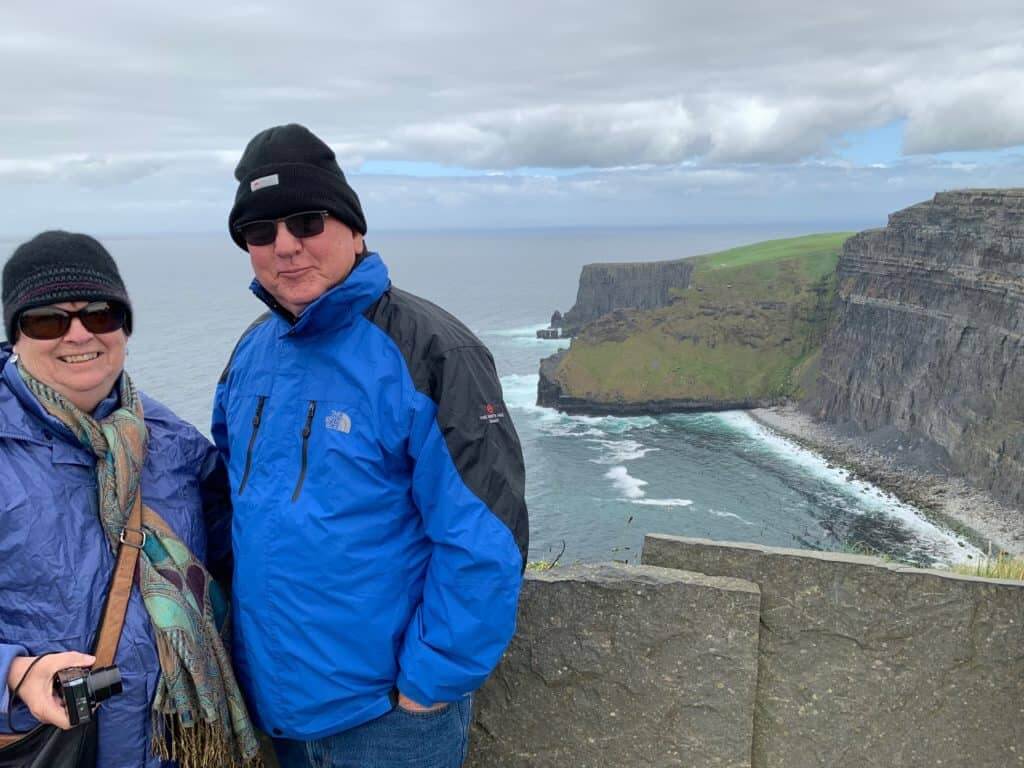
Even cooler weather could not take away Daylle’s smile
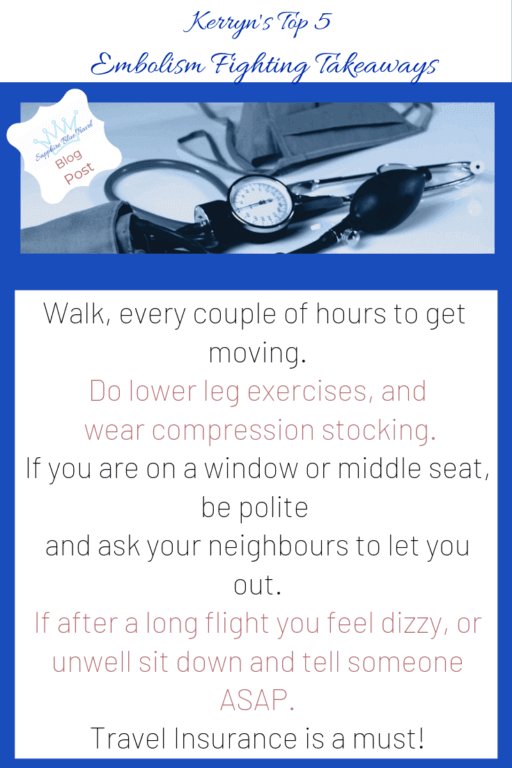
Want to know how you can help yourself on a long haul to lower the risk? Check out this post Health and Fitness while Flying

*The above is offered as information and should not be taken as solid medical advice, if anything mentioned in the above concerns you, always speak to your medical professional as to how best to deal with your concerns. Any medical treatment Daylle refers to is part of her experience and you should follow the advice of your Doctor.



